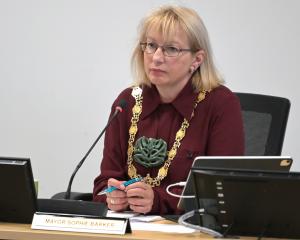The announcement by the Government this week it intends to introduce temporary legislation to change the law relating to the gathering of covert video evidence, and furthermore to introduce it under urgency, is a rare move.
It follows the decision by the Supreme Court allowing that the gathering of such evidence for the prosecutions of the Urewera "terror raid" defendants - specifically those charged with Arms Act offences - was unlawful.
The effect of this was the dismissal of the cases against 13 of those charged. One defendant has since died, and the four remaining are charged with more serious Crimes Act offences - for which the Supreme Court deemed the evidence gathered was admissible. They will be tried before a jury in February next year.
Respect for the convention the Government and the judiciary in New Zealand fulfil separate and independent functions - each effectively providing a check upon the other - means that seldom does the executive "interfere" in the rulings of the courts.
There are exceptions, particularly where it is deemed by government that the interpretation of the law handed down by judges is so manifestly at odds with the will of Parliament - and thus of the people - that it must be changed. Shades of opinion will inform such a decision and the danger therefore exists of a perceived politicisation of the law and the undermining of confidence in it.
Peremptory action to redress court rulings can also have unexpected consequences: witness the Foreshore and Seabed Act 2004, speedily enacted by a Labour-led administration. Make law in haste, regret at leisure, to paraphrase an old saying. That law radically changed the political landscape of the country, and has had a profound effect on recent history.
The National Government's intentions in this instance are unlikely to have such seismic ramifications, but much expert opinion suggests to undo the Supreme Court's ruling, to replace the status quo with a law that has retrospective force, and to do so under urgency is at best unwise.
Nobody is arguing the police should not be allowed to gather evidence required to put criminals in jail, but what the Supreme Court effectively says in its 3-2 majority decision is that the force is as constrained by the law as everyone else.
In deciding whether the evidence acquired in Tuhoe country was admissible, judges had to balance the seriousness of police impropriety in gathering the evidence - factoring in fundamental values of property, privacy and dignity under the Bill of Rights Act - against the seriousness of the purported criminal offending.
In the case of the Arms Act charges they came down on the side of the Bill of Rights; in the case of more serious "criminal group" charges they decided in favour of the Crimes Act. They did not make a blanket ruling that all such evidence would never be admissible - so the claim by the Government that many serious criminals will go free is not easy to sustain.
The Government has argued the Supreme Court ruling calls for a clarification of the law and that is all it is attempting to do. But it is the manner in which it proposes to do so that raises cautions. It should not come as a surprise to either politicians or the police that there was a gap in existing law with respect to surveillance. The Law Commission identified this in 2007, and it has been addressed through the Search and Surveillance Bill 2009 which has yet to reach the statute book.
What should now be done?
While the Government attempts to find the votes to pursue its own solution, University of Otago law professor Andrew Geddis has suggested a temporary compromise: sections of the Search and Surveillance Bill pertaining to covert video evidence, which have passed through the select committee process, and which require the pertinent warrant to be signed by a judge, could be inserted into the Summary Proceedings Act 1957 to cover ongoing and new investigations until the new Bill is passed next parliamentary term.
This would have the benefit of keeping criminal investigations on track and facilitating new ones, but also of underscoring the independent status of the Supreme Court and the sanctity of the rule of law.











